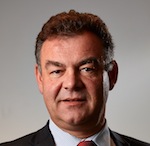
ECSEL Joint Undertaking: shaping digital innovation
Electronic Components and Systems are crucial to innovation for any business and everywhere in society: being the basis of all Information and Communications Tech- nologies (ICT), they have an important impact on the daily life of all Europeans.
A smartphone, a smart card, a smart energy grid, a smart city, even smart governance; everything ‘smart’ is based on integrating semiconductor chips running embedded software. They provide the fabric on which the internet runs; they give life to portable phones and tablets; they drive driverless cars and trains, fly airliners, drones and satellites.
They are essential in the deployment of viable, economically valuable solutions in almost every domain.
In modern times, no national economy can win in the global competition without mastering this technology, which has unparalleled systemic and strategic impact.
Building on the results of ARTEMIS and ENIAC JUs (set up in 2008 after having identified some key sectors, e.g. mobility, health, production, energy, digital society), the European Union established the ECSEL JU with the charter to coordinate the elements that drive strategic innovation, aligning the EU, national governments and industry around the EU’s long-term goals.
Europe’s world-class researchers and academics, SMEs and leading companies started collaborating around a common agenda to benefit all – public and private – from the advances they deliver.
This is the “grand idea” behind the programme: not just research for research’s sake but focussing on issues that will genuinely matter to people and society.
To take one example: “Smart Mobility” offers the potential to solve many of Europe’s mobility challenges: from traffic congestion (that aggravates air pollution) to accessible, useful, zero-emission and zero-accident mobility solutions for citizens, in urban and also rural contexts. But, it is not simply a contribution to developing autonomous vehicles; it is indeed developing a series of interconnected technologies working in harmony – some networked, some on-board – fully compatible each other, and so complex that they cannot be mastered by a single partner, nor even a single country.
It is creating a set of systems that work together to assure secure and safe conditions for all users, passengers, pedestrians and other road users at all moments and in all weather conditions. And “Joint Technology Initiatives”, implemented by the ECSEL JU, are all about doing things together, to achieve common goals.
But, what does a European citizen expect in his daily life from all these connected objects anyway? Basically, we can call it a “Smart Society”. Not only will their cell phone be used to exchange family videos while comfortably nestled in a favourite sofa or that their smart watch guides them through a full and busy day without battery charging.
Or that their smart car drives pollution-free and safely in unpredictable and sometimes potentially dangerous situations, or that they can rely on the remote monitoring and assistance of aged parents. In other words – the prospect of a longer, healthier, productive, interesting, inclusive and affordable life.
The ECSEL JU had a great supportive role in deploying a revolutionary technology for very low power-loss electronic chips in a cost-effective way: “FD-SOI” (Fully Depleted Silicon On Insulator).
Rooted in Europe, FD-SOI is already commercialized in many domains, from smart watches to cars, and massive investments are being made worldwide, keeping the EU in its leadership position.The potential of this innovation is so huge that mainstream world-wide actors are embracing the European technology, and the ECSEL JU, with the FD-SOI success, is demonstrating the capability to cross the “valley of death” between excellent science on the one side, and socio-economic benefit through growth and jobs on the other.
In short, the ECSEL JU has successfully launched a model for financing and securing important industrial and socio-economic developments through leadership in ECS, on astable, European base. But is this enough? And where do we go from here?
ECSEL JU is fully dedicated to securing a strong contribution towards a smart, sustainable and inclusive growth, not only by strengthening the current cooperation amongst its members but also by exploring innovative tools.
This is why ECSEL JU has launched the “Lighthouse Initiatives”, which represent a further structuring of the “clus- tering” activities already characteristic of ECSEL JU’s model. More innovation through inno- vative ways, for the full benefit of European citizens and businesses, who ultimately are the true beneficiaries of the innovative work done by partners in ECSEL JU funded projects.
Europe needs a strong industry but – in a context where financial resources are quite scarce – there is a need to optimise the current financial tools at EU and National level, and assure maximum impact of the research and innovation programmes.
There is no magic solution for incentivising investments. However, there are effective options that, by sharing risks between public and private entities, can fertilise pathways to innovation and growth in Europe.
With its tripartite structure (the European Commission, Participating States and Industrial participants), we are fully convinced that the ECSEL JU model is the best way forward.
The ECSEL JU is more than a funding instrument: it is an ambitious programme with a powerful mix of short, medium and long-term vision: addressing the funding gap to overcome market failures and boost the realisation of projects that otherwise would not have taken off. ECSEL’s efforts today will ensure a smarter and more advanced European tomorrow.




